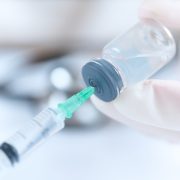Periodontal disease is a common inflammation of your gums and underlying jawbone and is a leading cause of tooth loss. This can be distressing, but modern dentistry has advanced solutions to your problems.
The periodontist in Dedham, MA, and their team are highly skilled and equipped to offer effective treatment options to manage periodontal disease to restore your oral form, function, and aesthetics.
What is meant by periodontal disease?
Periodontal disease is also known as gum disease and is a progressive destruction of the gums, cementum, periodontal ligaments, and alveolar bone. This is often caused by an increased bacterial infiltration that leads to the accumulation of plaque and calculus. The acids and toxins released from them erode the soft tissues (gingivitis) and may progress to the underlying jawbone (periodontitis), due to an inflammatory reaction by your body’s defense system. If left untreated, it can eventually lead to tooth loss.
What are the symptoms of periodontal disease?
- Red, or purple, puffy, engorged gums
- Bleeding gums
- Gum recession
- Bad breath (halitosis)
- Gaps or spaces between your teeth (diastema)
- Abscess with pus discharge
- Malocclusion
How is periodontal disease treated?
The treatment for periodontal disease depends on the extent and severity of the condition. The treatment options include:
Non-surgical
-
- The following options treat mild to moderate periodontal disease.
- Antibiotics
-
-
-
- These are prescribed in the form of oral drugs or topical gels to fight infection
-
-
- Scaling and root planning
- These deep dental cleanings are routine procedures that allow the dentist to eliminate plaque, calculus, and bacteria beneath the gum line.
- Root planing involves eliminating plaque and calculus from the root surfaces; this helps prevent plaque adherence.
Surgical
-
- The following surgical procedures treat moderate to severe periodontal disease
- Flap surgery
- An incision is made on your gums and a flap is raised to access the tooth roots and clean them thoroughly.
- Bone grafting
- This is an effective procedure to counteract bone loss by replacing the lost tissue with a graft material.
- The graft may be your bone, donated bone, or a synthetic material.
- Gum grafting
- Gum grafting helps treat gum recession by placing a tissue graft around the affected teeth and suturing it.
- The graft is obtained from any part of your oral cavity that covers the exposed tooth roots.
- Guided tissue regeneration
- A special biocompatible material is placed between the bone and the affected tooth.
- Platelet-rich plasma (PRP)
- PRP is extracted from your blood sample and injected into the deficient areas to encourage bone growth.
Conclusion
Periodontal disease, though common, can wreak havoc on your oral and general health. You may not be able to reverse periodontal disease completely, but you can easily manage the symptoms through early detection, and dental care.






Comments